
Reproductive Medicine and Technology
Useful information
Assisted Reproductive Technology Unit
Open Monday through Friday from 8 am to 6 pm and Saturday from 8 am to 3:30 pm
Most Frequent Procedures
- Conventional IVF (standard in vitro fertilization)
- Intracytoplasmic sperm injection (ICSI) and embryo transfer
- Intracytoplasmic morphologically selected sperm injection (IMSI)
- Blastocyst culture
- Embryo and egg freezing (vitrification)
- Assisted hatching
- Egg activation
- Surgical sperm retrieval and freezing
- Endometrial receptivity analysis
- Prise en charge inclusive quel que soit le projet parental, incluant la mise en relation avec les centres de dons de gamètes
Outstanding Patient Care
The ART unit of the American Hospital of Paris was one of the first centers of its kind in France. It was inaugurated in 1984 by a team of professionals who had taken part two years earlier in the birth of Amandine, the first French “test tube baby.” In the years that followed, doctors at the American Hospital of Paris pioneered the development of intracytoplasmic sperm injection (ICSI). In 1994, Audrey, the first baby born in France thanks to this new in vitro fertilization technique, was born at the American Hospital of Paris.
Today, our ART unit features a highly specialized team of biologists who oversee all laboratory procedures, 23 private practice physicians specialized in reproductive medicine, a team of uro-andrologists present from the initial consultation to the surgical retrieval of sperm, a team of genetic consultants and a team of psychologists. We manage more than 2,300 IVF procedures and 1500 frozen embryo transfers per year, making us the leading center for assisted reproductive technology in France. Our ART laboratory is ISO 15189-accredited by COFRAC (French accreditation committee, no. 8-4195) and by the American Joint Commission.
The American Hospital of Paris’s Assisted Reproductive Technology center uses an electronic identity monitoring system called RI WitnessTM. Each couple receives an electronic ID card. Thanks to this card, the system can check their identity on every piece of equipment and material used for each fertilization attempt. RI WitnessTM ensures the traceability of all steps involved in the handling of sperm, eggs and embryos. Radiofrequency identification chips containing the identity of both partners are placed on the laboratory dishes. This system ensures an extremely high level of security in terms of identity monitoring.
Our unit operates within the Hospital and has access to multidisciplinary services on site including outpatient care, an operating suite, anesthesiologists, specialized nurses and an array of inpatient units.
The American Hospital of Paris also features a Fetal Medicine Unit and a maternity ward.
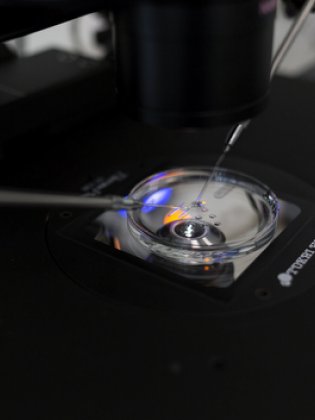
Chiffres clés
-

TRANSFERTS RÉALISÉS EN 2024
Avec 2337 transferts frais et congelés réalisées en 2024, notre service se place comme un leader français -

PONCTIONS RÉALISÉS EN 2024
-

MEDECINS SPECIALISES ET BIOLOGISTES EXPERTS
réaccrédités tous les 2 ans -

NAISSANCES OU GROSSESSES EN COURS ISSUES D'UNE FIV
en 2024
What Sets Us Apart
- Latest-generation equipmentenabling the use of all ART techniques under optimal conditions of safety and efficacy. In particular, the use of incubators featuring time-lapse technology (EmbryoScope) creates an embryo culture environment guaranteeing the best chances for pregnancy.
- A state-of-the-art hospital environmentAll supplementary exams can be performed on site, and consultations are available in all medical specializations
- Support from start to finishOur unit works closely with our Fetal & Genetic Medicine Unit and maternity ward, all in a single location
Registration
To register, you must first consult a gynecologist from our ART Unit.
During this initial consultation, the gynecologist will review your medical file and prescribe any supplementary exams needed to make sure ART treatment is appropriate to your situation.
You can also benefit from the advice and opinion of our biologists in order to optimize and personalize your treatment strategy.
Notre centre d'AMP et le système de vigilance d'identité
Traçabilité et sécurité des gamètes
Le centre d’assistance médicale à la procréation de l’Hôpital Américain de Paris utilise un système de vigilance d’identité, le « RI Witness ». Grâce à une carte électronique remise à chaque couple, ce système d’identitovigilance permet de s’assurer de leur identité lors de la tentative de fécondation pour tous les équipements et le matériel utilisé au cours de cette tentative. Ce système permet la traçabilité des étapes de manipulation du sperme, des ovocytes et des embryons. Des puces électroniques (RFID) sont apposées sur les contenants et portent l’identité des deux membres du couple. Ce système garantit un très haut niveau de sécurité pour l’identitovigilance.
Our gynecologists
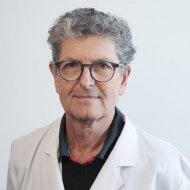

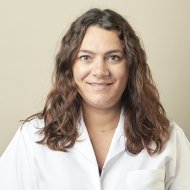
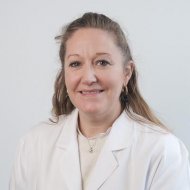

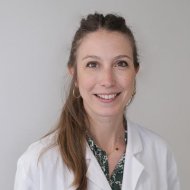







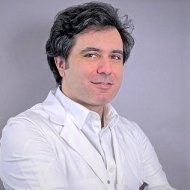


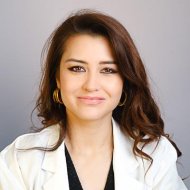

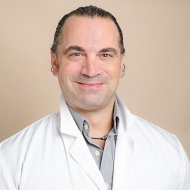
Our biologists
-
Dr Carine Pessah
-
Dr Frida Entezami
Contact : 0146412881 -
Beatriz Gonzalez Marti
Elixir : une plateforme éducative dédiée à nos patients
Afin de mieux vous accompagner tout au long de votre parcours, notre unité met à votre disposition Elixir, une plateforme interactive et sécurisée.
Vous y trouverez :
- des informations validées par nos médecins sur chaque étape de l’AMP,
- des vidéos pédagogiques et des supports explicatifs,
- des conseils pratiques pour préparer vos traitements et rendez-vous.
Accessible en ligne 24h/24, Elixir est conçu comme un véritable guide numérique, pour vous aider à comprendre et vivre sereinement votre parcours.

Un service pionnier
L'Unité d'AMP de l'Hôpital Américain de Paris a été l'un des tout premiers centres créés en France. Il a vu le jour en 1984, sous l’impulsion d’une équipe de professionnels ayant participé deux ans plus tôt à la naissance d'Amandine, le premier “bébé-éprouvette” français. Par la suite, l’équipe de l’Hôpital Américain de Paris a été pionnière dans le développement de la fécondation assistée par micro-injection (ICSI). Elle a obtenu la naissance d'Audrey à l'Hôpital Américain de Paris en 1994, première bébé né en France grâce à cette nouvelle technique de fécondation in-vitro.
